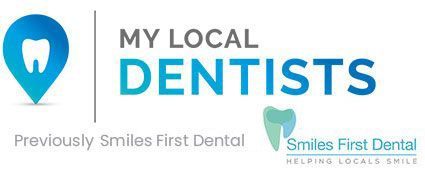
Broken tooth pain is an unpleasant sensation that can range from mild to severe. Depending on the severity of the break, pain may also be felt in the surrounding teeth, gum line, and jaw. Additionally, broken teeth can cause sensitivity to hot and cold beverages or foods. If you have broken or chipped teeth, it’s important to seek professional dental care as soon as possible.
In this article, we will explain broken tooth pain, how to manage it at home, and what to expect when you’re getting your medical treatment.
Cracked Tooth Syndrome
People with cracked tooth syndrome often have symptoms, such as pain while eating or drinking, for months before the problem is detected. Only a dentist can diagnose it with a complete oral examination that includes taking a dental history and getting radiographs (x-rays), along with using a fibre optic handpiece, which can help find the fractured teeth. People who have had a cracked tooth in the past are more likely to develop additional cracks in the future.
First Aid For Broken tooth
A cracked tooth can be very painful, so it’s important to take the necessary steps to relieve any discomfort. Here are some tips to relieve the pain of a fractured tooth at home:
- Rinse your mouth with a saltwater solution or warm water to remove any debris or food particles in the tooth cracks that could be causing discomfort.
- Take an over-the-counter pain reliever such as ibuprofen or acetaminophen to reduce the amount of broken tooth pain you’re experiencing.
- Avoid eating hard foods and sticky sweets that could further damage your chipped or broken tooth. Instead, stick to soft foods like applesauce and mashed potatoes until you can get professional medical care.
- Apply a cold compress to the broken tooth to reduce swelling and inflammation and relieve pain.
- Use cloves oil as a natural remedy to reduce broken tooth pain. Cloves oil contains eugenol, which is an analgesic and anti-inflammatory agent that can help numb the painful tooth and reduce discomfort.
Seeking Professional Treatment For Broken Tooth Pain
A cracked or broken tooth that’s causing a toothache is likely to need treatment of the dental pulp in order to ensure the pain is permanently gone. Your dentist will be able to diagnose the extent of your broken tooth and provide the necessary treatments. These treatments can help alleviate broken tooth pain and protect the teeth from further damage. However, treatment will depend on a few factors, such as:
- The severity of the break
- The length of time since it occurred
- Any nerve damage has occurred
Your dentist may recommend one or more treatments, such as root canal therapy, crown placement, tooth bonding, dental implants, veneers, or dentures. In some cases, tooth extraction might be needed.
 Additionally, your dentist may prescribe an over-the-counter pain reliever or give you a prescription for stronger medication in order to alleviate broken tooth pain relief.
Additionally, your dentist may prescribe an over-the-counter pain reliever or give you a prescription for stronger medication in order to alleviate broken tooth pain relief.
If you are experiencing broken tooth pain, contact your dental provider immediately for an evaluation and proper treatment plan. Prompt treatment can help get you back on track quickly with minimal discomfort!
How to Prevent Broken Tooth Pain?
There’s no doubt that you don’t want to experience broken or cracked tooth pain again. So, here are a few tips to prevent this from happening in the future:
- Wear a mouthguard when playing contact sports or engaging in activities that could cause broken teeth
- Avoid biting down on hard objects such as ice, popcorn kernels, and nuts
- Brush your teeth twice daily with fluoride toothpaste to keep your enamel strong and healthy
- Floss regularly to remove any food particles that can cause damage to the enamel of your teeth
- Visit your dentist regularly for professional cleanings and check-ups so that any problems can be caught early on before they become serious issues affecting your broken tooth pain relief
By following these tips, you can help prevent broken tooth pain from occurring in the future and protect yourself from further dental issues.
If you’re having kind of broken teeth, make sure to contact us on (02) 9630 9996 and get your consultation. Our dental team will be able to diagnose your broken tooth and discuss treatment options with you. By taking steps to address broken tooth pain, you can help ensure your broken tooth is repaired and minimise the risk of further damage.
Note: Any surgical or invasive procedure carries risks. Before proceeding, you should seek a second opinion from an appropriately qualified health practitioner.
References
Diagnosis of cracked tooth syndrome
https://www.ncbi.nlm.nih.gov/pmc/articles/PMC3467890/
Cracked teeth
https://www.aae.org/patients/dental-symptoms/cracked-teeth/
Dental (Odontogenic) Pain
https://journals.sagepub.com/doi/10.1177/204946371100500102
Thermal Pain in Teeth: Electrophysiology Governed by Thermomechanics
https://asmedigitalcollection.asme.org/appliedmechanicsreviews/article-abstract/66/3/030801/369879/Thermal-Pain-in-Teeth-Electrophysiology-Governed?redirectedFrom=fulltext
What is a root canal?
https://www.aae.org/patients/root-canal-treatment/what-is-a-root-canal/
An evaluation of 10 per cent and 20 per cent benzocaine gels in patients with acute toothaches
https://www.ncbi.nlm.nih.gov/pmc/articles/PMC3844156/
Multimodal management of dental pain with focus on alternative medicine: A novel herbal dental gel
https://www.contempclindent.org/article.asp?issn=0976-237X;year=2016;volume=7;issue=2;spage=131;epage=139;aulast=Kumarswamy

